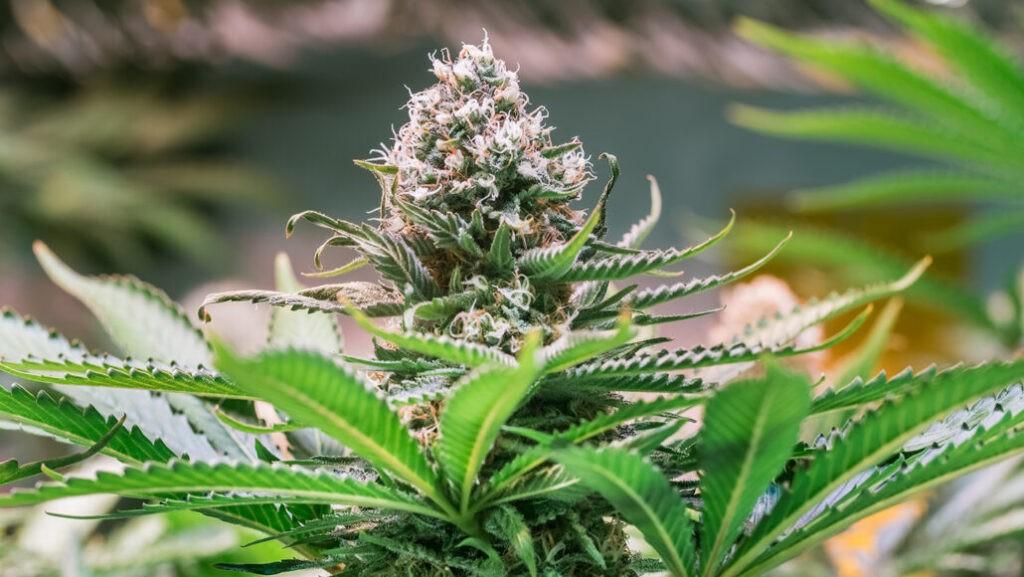Yesterday, United States Senator Kirsten Gillibrand and Congressmember Jerrold Nadler joined numerous New York lawmakers and marijuana reform activists to call on the Attorney General and the Drug Enforcement Administration (DEA) to deschedule marijuana.

Senator Gillibrand and Congressmember Nadler were joined in Harlem by Senator Cordell Cleare, New York City Council Member Yusef Salaam, New York State Assemblymember Eddie Gibbs, New York State Assemblymember Rev. Al Taylor, Executive Director of Empire State NORML David Holland, business leaders, and other marijuana reform advocates.
“The highly stigmatized substance is currently classified in the same category as heroin and a more dangerous category than fentanyl or cocaine — even though marijuana is not associated with the same acute health risks and potential for addiction and abuse”, says a press release from Senator Gillibrand’s office. “Additionally, people of color are more likely to have criminal records for marijuana possession and to face needless barriers to employment, housing, and educational opportunities as a result.”
Senator Gillibrand is calling on the Biden administration to swiftly end the nation’s overly restrictive federal marijuana policy.
“Descheduling marijuana from the Controlled Substances Act is not just a social justice issue; it’s an economic, medical, and public safety issue. Since marijuana was classified as a Schedule I substance during the war on drugs, countless lives have been torn apart, and individuals in primarily Black and brown communities have been targeted for nonviolent cannabis-related offenses,” said Senator Gillibrand. “Studies show that legalizing marijuana could help reduce violence in international drug trafficking and generate billions of dollars for the economy. The vast majority of Americans agree that marijuana should be legalized – that’s why I’m calling on the Attorney General and the Drug Enforcement Administration to swiftly deschedule marijuana from the Controlled Substances Act.”
“For too many years, this country has waged a failed War on Drugs, including the criminalization of marijuana, that has inflicted untold suffering on millions of Americans,” said Congressman Nadler. “Marijuana never should have been placed on the most restrictive schedule of the Controlled Substances Act—alongside substances such as heroin and cocaine. I appreciate the Biden Administration’s decision to review the status of marijuana, and I strongly urge the Administration to deschedule it completely. It is time to end the prohibition and criminalization of marijuana at the federal level.”
“The War on Drugs is over – we all know this by now. And, in the end, it turns out it was nothing more than a war on the American people, particularly people of color. In New York, as in so many other states, we have demonstrated that it is possible to legalize adult-use cannabis without the sky falling. The sooner everyone in Washington admits these obvious facts, the better. I thank Sen. Gillibrand for taking leadership on this critical issue.” – New York State Senator Krueger
“For far too long cannabis has been demonize, stigmatized and harmful primarily to people of color whose lives in a lot of instances have been ruined. The medical benefits of cannabis has been know for decades but denied. I commend the Senator for taking these bold action to remove cannabis out of the category associated with heroin is long pass overdue thank you Senator Gillibrand,” said New York State Assemblymember Rev. Al Taylor.
“Empire State NORML strongly supports Senator Gillibrand’s call for the federal descheduling of cannabis. The repeal of cannabis prohibition through rescheduling does not promote New York’s stated goal in the Marihuana Regulation and Taxation Act (“MRTA”), of redressing the harms of the War on Drugs. By rescheduling cannabis as a Schedule III medicine may be the catalyst to the unintended consequence of creating a national medical monopoly that could supplant the existing cannabis industry found in New York and more than 40 other states which has produced more than half a million jobs and billions of dollars of revenue. Such an industry contraction and concentration of the ownership of the means of production to the medical industry could stifle competition and inhibit strain development and cannabinoid innovation richly found in the existing and ongoing market. Preservation of the state economies build around the cannabis industry and continued participation of the diverse pool of independent operators and entrepreneurs across the nation should be a greater priority than solely bestowing alleviation from IRS Code 280e to a chosen few. The potential for that devastating consequence can be avoided by descheduling cannabis and allowing the states to continue in their missions to foster existing markets while promoting at a more grass roots level the health and welfare of their cannabis consuming constituents.” – Empire State NORML
“We all deserve marijuana laws rooted in equity, health, safety, and dignity. As a country we have made progress toward addressing the racist, hideous legacy of marijuana criminalization, and the lifelong collateral consequences caused for many of our loved ones. However, as long as marijuana remains on the Controlled Substances Act, the harms of federal marijuana criminalization will persist. We thank Senator Gillibrand for her leadership in calling for marijuana descheduling, and we are encouraged that a growing number of her colleagues in Congress and the majority of voters agree that it’s long past time to end federal marijuana criminalization.” – Drug Policy Alliance
The Controlled Substances Act (CSA) divides controlled substances into five schedules, ranging from Schedule I to Schedule V. Marijuana is currently a Schedule I drug — a classification reserved for the CSA’s most dangerous drugs described as having:
- high potential for abuse;
- no currently accepted medical use in treatment in the United States;
- a lack of accepted safety for use under medical supervision.
As a Schedule I drug, marijuana exists in the same category as heroin and a more dangerous category than fentanyl or cocaine, despite evidence that it does not pose as much harm or create the same degree of dependence. This scheduling decision “was made against the political backdrop of the early 1970s, when cannabis prohibition was used to target the antiwar left and Black people”.

